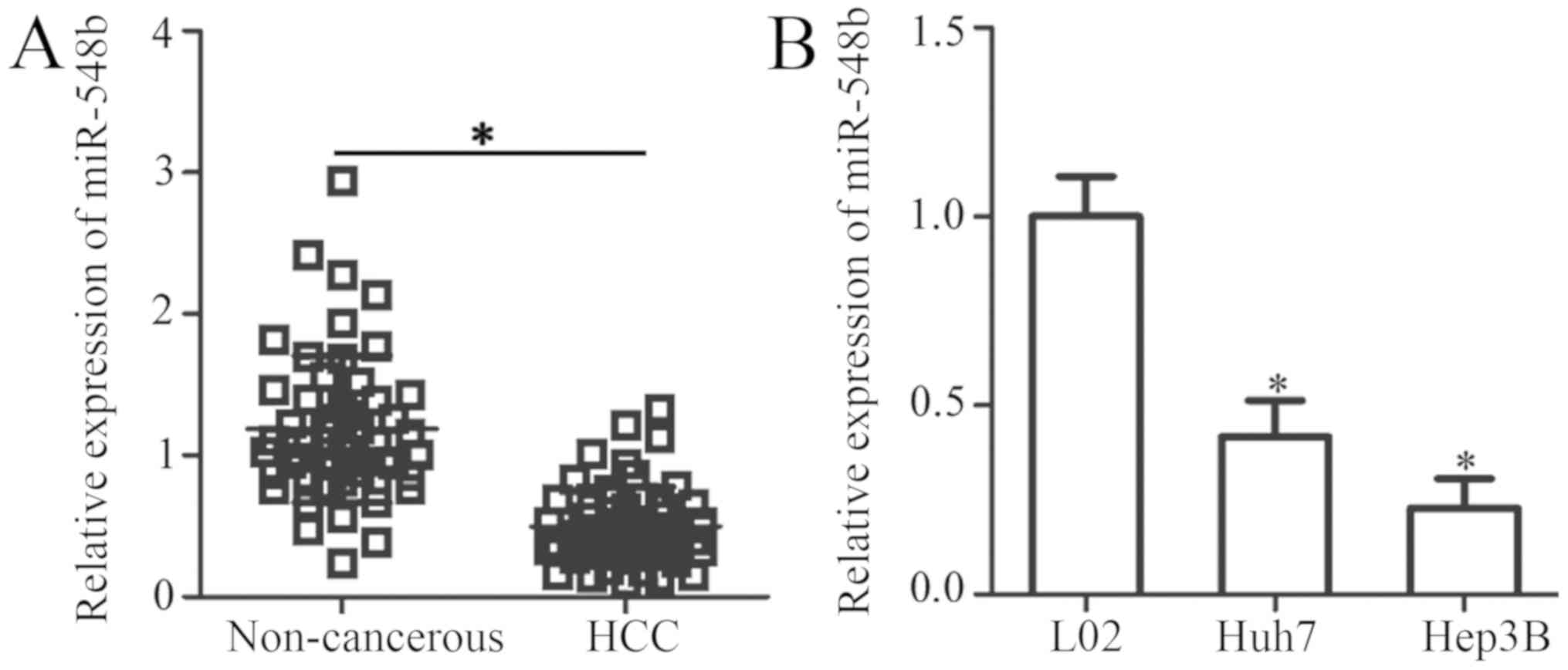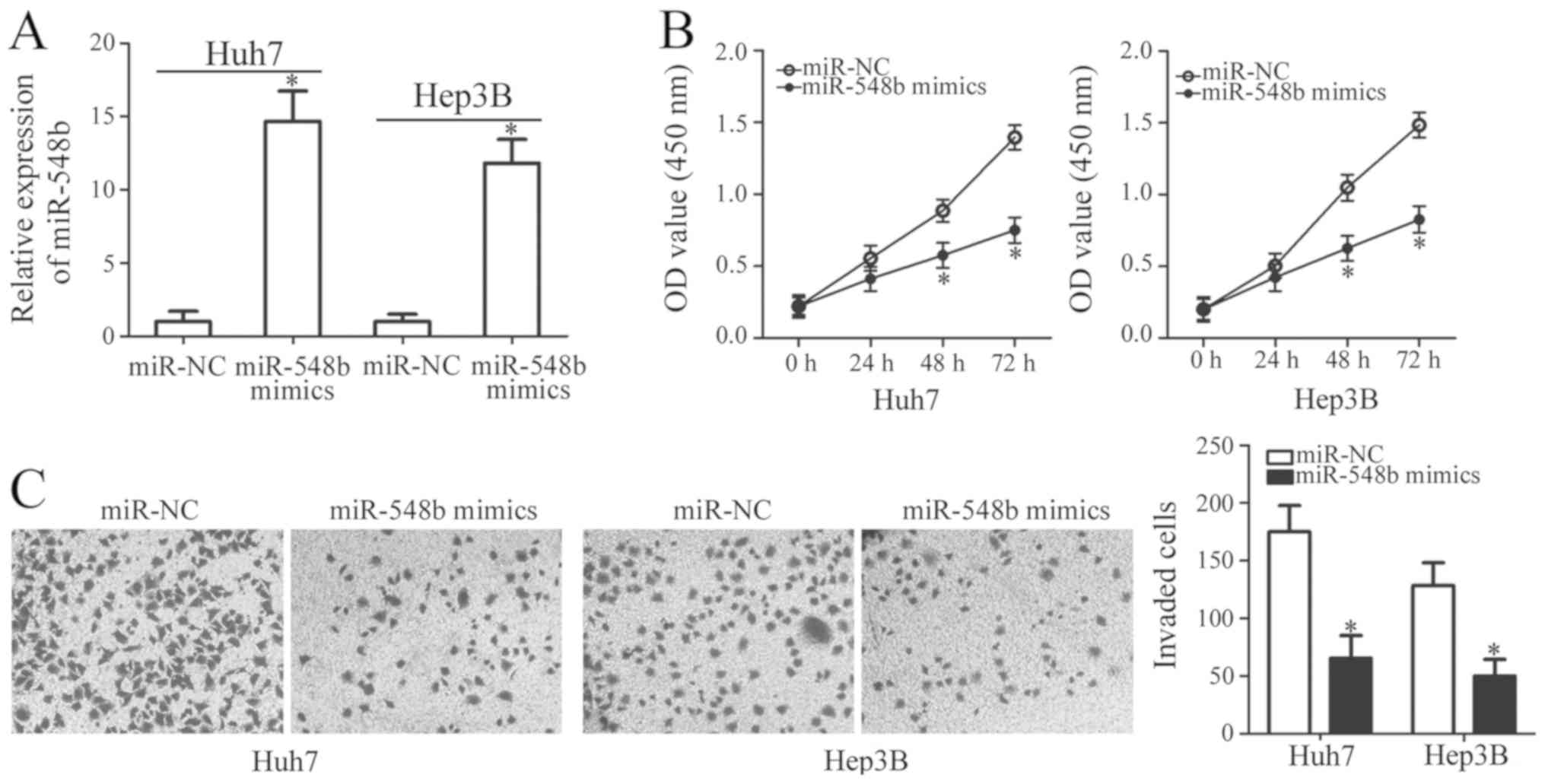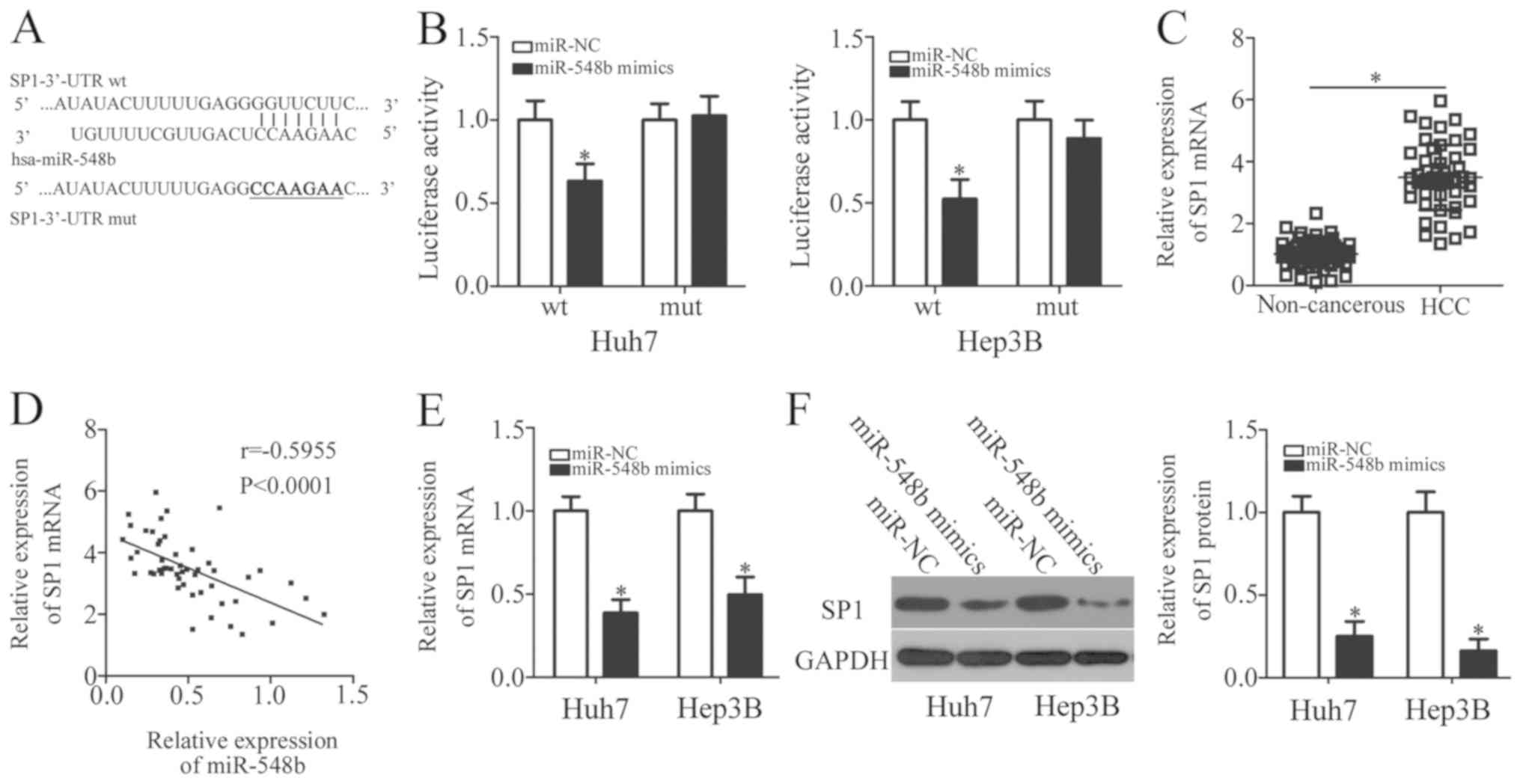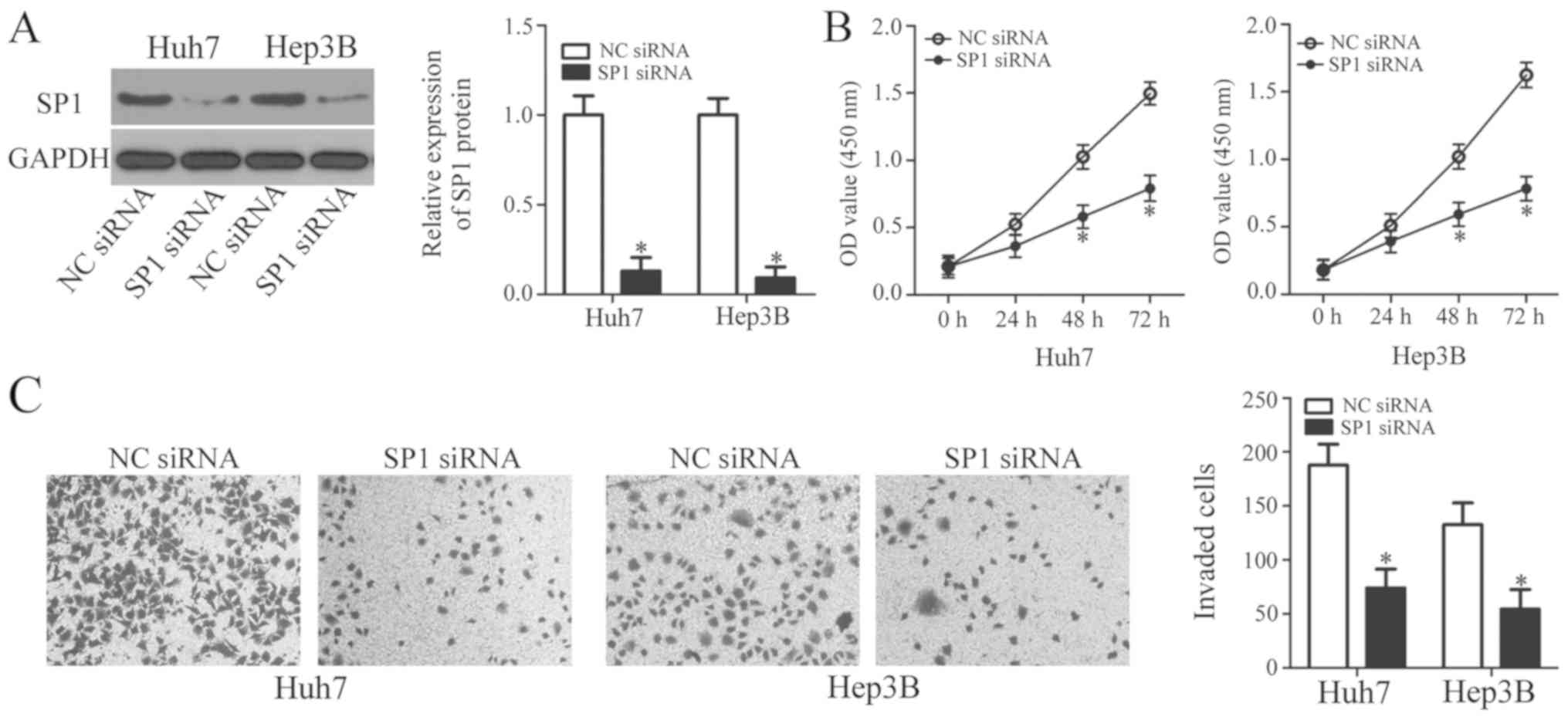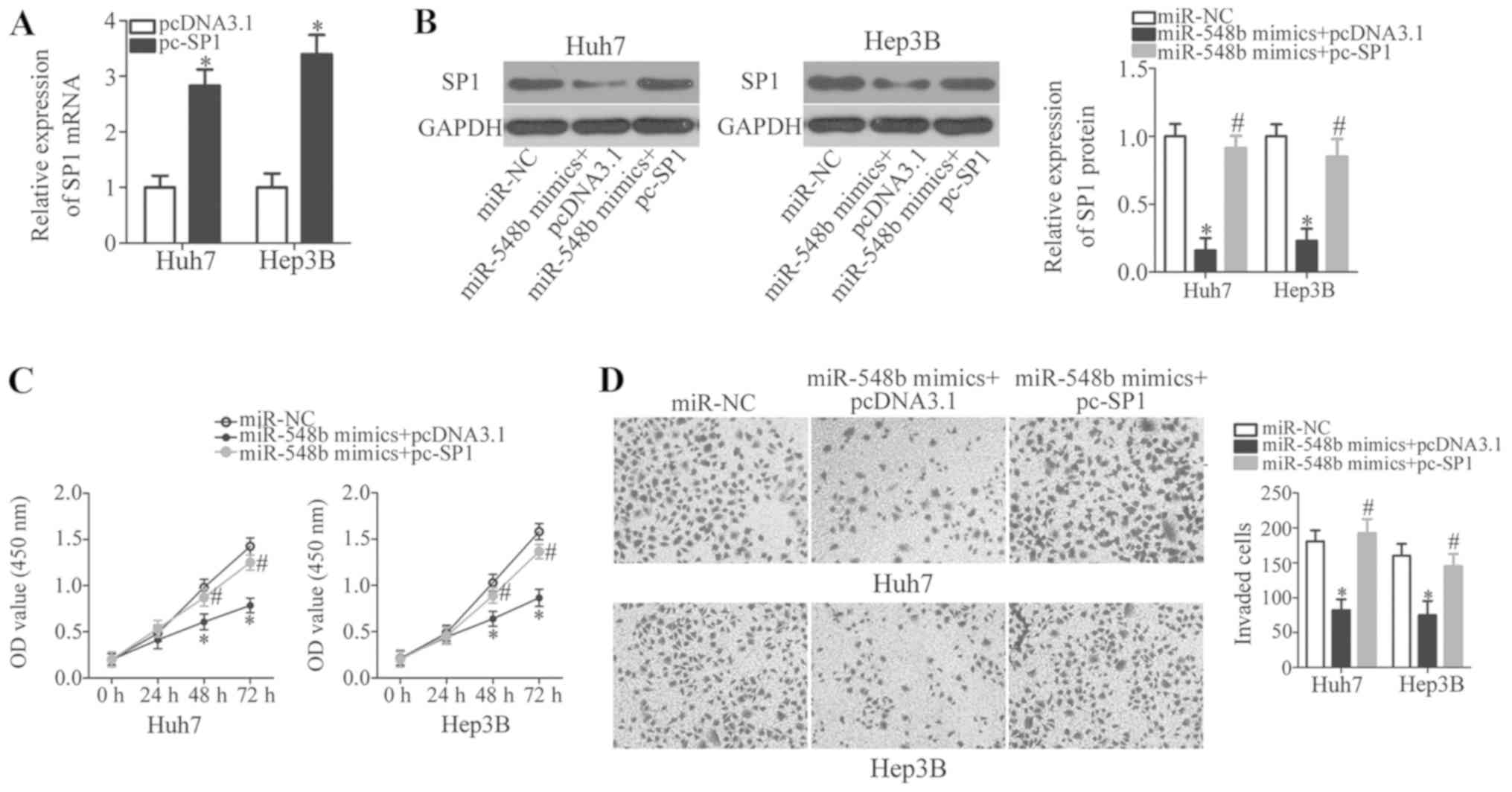|
1
|
Torre LA, Bray F, Siegel RL, Ferlay J,
Lortet-Tieulent J and Jemal A: Global cancer statistics, 2012. CA
Cancer J Clin. 65:87–108. 2015. View Article : Google Scholar : PubMed/NCBI
|
|
2
|
Global Burden of Disease Cancer
Collaboration, ; Fitzmaurice C, Allen C, Barber RM, Barregard L,
Bhutta ZA, Brenner H, Dicker DJ, Chimed-Orchir O, Dandona R, et al:
Global, Regional, and National cancer incidence, mortality, years
of life lost, years lived with disability, and disability-adjusted
life-years for 32 cancer groups, 1990 to 2015: A systematic
analysis for the global burden of disease study. JAMA Oncol.
3:524–548. 2017. View Article : Google Scholar : PubMed/NCBI
|
|
3
|
Peng W, Chen Y, Jiang Q and Zheng Y:
Spatial analysis of hepatocellular carcinoma and socioeconomic
status in China from a population-based cancer registry. Cancer
Epidemiol. 34:29–33. 2010. View Article : Google Scholar : PubMed/NCBI
|
|
4
|
Chawla A and Ferrone C: Hepatocellular
carcinoma surgical therapy: Perspectives on the current limits to
resection. Chin Clin Oncol. 7:482018. View Article : Google Scholar : PubMed/NCBI
|
|
5
|
Kulik L and El-Serag HB: Epidemiology and
management of hepatocellular carcinoma. Gastroenterology.
156:477–491.e1. 2019. View Article : Google Scholar : PubMed/NCBI
|
|
6
|
Mak LY, Cruz-Ramón V, Chinchilla-López P,
Torres HA, LoConte NK, Rice JP, Foxhall LE, Sturgis EM, Merrill JK,
Bailey HH, et al: Global epidemiology, prevention, and management
of hepatocellular carcinoma. Am Soc Clin Oncol Educ Book.
38:262–279. 2018. View Article : Google Scholar : PubMed/NCBI
|
|
7
|
Bosetti C, Turati F and La Vecchia C:
Hepatocellular carcinoma epidemiology. Best Pract Res Clin
Gastroenterol. 28:753–770. 2014. View Article : Google Scholar : PubMed/NCBI
|
|
8
|
Miller KD, Siegel RL, Lin CC, Mariotto AB,
Kramer JL, Rowland JH, Stein KD, Alteri R and Jemal A: Cancer
treatment and survivorship statistics, 2016. CA Cancer J Clin.
66:271–289. 2016. View Article : Google Scholar : PubMed/NCBI
|
|
9
|
Jeong SW, Jang JY and Chung RT: Hepatitis
C virus and hepatocarcinogenesis. Clin Mol Hepatol. 18:347–356.
2012. View Article : Google Scholar : PubMed/NCBI
|
|
10
|
Nishida N and Goel A: Genetic and
epigenetic signatures in human hepatocellular carcinoma: A
systematic review. Curr Genomics. 12:130–137. 2011. View Article : Google Scholar : PubMed/NCBI
|
|
11
|
Zhang YJ: Interactions of chemical
carcinogens and genetic variation in hepatocellular carcinoma.
World J Hepatol. 2:94–102. 2010. View Article : Google Scholar : PubMed/NCBI
|
|
12
|
Bartel DP: MicroRNAs: Genomics,
biogenesis, mechanism, and function. Cell. 116:281–297. 2004.
View Article : Google Scholar : PubMed/NCBI
|
|
13
|
Agarwal V, Bell GW, Nam JW and Bartel DP:
Predicting effective microRNA target sites in mammalian mRNAs.
ELife. 4:2015.doi: 10.7554/eLife.05005. View Article : Google Scholar
|
|
14
|
Hwang HW and Mendell JT: MicroRNAs in cell
proliferation, cell death, and tumorigenesis. Br J Cancer. 96
(Suppl):R40–R44. 2007.PubMed/NCBI
|
|
15
|
Garzon R, Calin GA and Croce CM: MicroRNAs
in cancer. Annu Rev Med. 60:167–179. 2009. View Article : Google Scholar : PubMed/NCBI
|
|
16
|
Garzon R and Croce CM: MicroRNAs and
cancer: Introduction. Semin Oncol. 38:721–723. 2011. View Article : Google Scholar : PubMed/NCBI
|
|
17
|
Garzon R and Marcucci G: Potential of
microRNAs for cancer diagnostics, prognostication and therapy. Curr
Opin Oncol. 24:655–659. 2012. View Article : Google Scholar : PubMed/NCBI
|
|
18
|
Vasuri F, Visani M, Acquaviva G, Brand T,
Fiorentino M, Pession A, Tallini G, D'Errico A and de Biase D: Role
of microRNAs in the main molecular pathways of hepatocellular
carcinoma. World J Gastroenterol. 24:2647–2660. 2018. View Article : Google Scholar : PubMed/NCBI
|
|
19
|
Yang S, Sun Z, Zhou Q, Wang W, Wang G,
Song J, Li Z, Zhang Z, Chang Y, Xia K, et al: MicroRNAs, long
noncoding RNAs, and circular RNAs: Potential tumor biomarkers and
targets for colorectal cancer. Cancer Manag Res. 10:2249–2257.
2018. View Article : Google Scholar : PubMed/NCBI
|
|
20
|
Iqbal MA, Arora S, Prakasam G, Calin GA
and Syed MA: MicroRNA in lung cancer: Role, mechanisms, pathways
and therapeutic relevance. Mol Aspects Ned. Aug 17–2018.(Epub ahead
of print). doi: 10.1016/j.mam.2018.07.003. View Article : Google Scholar
|
|
21
|
Homami A and Ghazi F: MicroRNAs as
biomarkers associated with bladder cancer. Med J Islam Repub Iran.
30:4752016.PubMed/NCBI
|
|
22
|
Xu J, Li J, Zheng TH, Bai L and Liu ZJ:
MicroRNAs in the occurrence and development of primary
hepatocellular carcinoma. Adv Clin Exp Med. 25:971–975. 2016.
View Article : Google Scholar : PubMed/NCBI
|
|
23
|
Jin K, Li T, Sanchez-Duffhues G, Zhou F
and Zhang L: Involvement of inflammation and its related microRNAs
in hepatocellular carcinoma. Oncotarget. 8:22145–22165.
2017.PubMed/NCBI
|
|
24
|
Hayes CN and Chayama K: MicroRNAs as
biomarkers for liver disease and hepatocellular carcinoma. Int J
Mol Sci. 17:2802016. View Article : Google Scholar : PubMed/NCBI
|
|
25
|
He ZJ, Li W, Chen H, Wen J, Gao YF and Liu
YJ: miR-1306-3p targets FBXL5 to promote metastasis of
hepatocellular carcinoma through suppressing snail degradation.
Biochem Biophys Res Commun. 504:820–826. 2018. View Article : Google Scholar : PubMed/NCBI
|
|
26
|
Wang Z, Si M, Yang N, Zhang H, Fu Y, Yan
K, Zong Y, Zhu N and Wei Y: MicroRNA-506 suppresses invasiveness
and metastasis of human hepatocellular carcinoma cells by targeting
IL8. Am J Cancer Res. 8:1586–1594. 2018.PubMed/NCBI
|
|
27
|
Berania I, Cardin GB, Clement I, Guertin
L, Ayad T, Bissada E, Nguyen-Tan PF, Filion E, Guilmette J, Gologan
O, et al: Four PTEN-targeting co-expressed miRNAs and
ACTN4-targeting miR-548b are independent prognostic biomarkers in
human squamous cell carcinoma of the oral tongue. Int J Cancer.
141:2318–2328. 2017. View Article : Google Scholar : PubMed/NCBI
|
|
28
|
Pan Y, Liang W, Zhao X, Liu L, Qing Y and
Li Y: miR-548b inhibits the proliferation and invasion of malignant
gliomas by targeting metastasis tumor-associated protein-2.
Neuroreport. 27:1266–1273. 2016. View Article : Google Scholar : PubMed/NCBI
|
|
29
|
Livak KJ and Schmittgen TD: Analysis of
relative gene expression data using real-time quantitative PCR and
the 2(-Delta Delta C(T)) method. Methods. 25:402–408. 2001.
View Article : Google Scholar : PubMed/NCBI
|
|
30
|
Liu C, Zhu J, Liu F, Wang Y and Zhu M:
MicroRNA-138 targets SP1 to inhibit the proliferation, migration
and invasion of hepatocellular carcinoma cells. Oncol Lett.
15:1279–1286. 2018.PubMed/NCBI
|
|
31
|
Liu L, Ji P, Qu N, Pu WL, Jiang DW, Liu
WY, Li YQ and Shi RL: The impact of high co-expression of Sp1 and
HIF1a on prognosis of patients with hepatocellular cancer. Oncol
Lett. 12:504–512. 2016. View Article : Google Scholar : PubMed/NCBI
|
|
32
|
Yin P, Zhao C, Li Z, Mei C, Yao W, Liu Y,
Li N, Qi J, Wang L, Shi Y, et al: Sp1 is involved in regulation of
cystathionine gamma-lyase gene expression and biological function
by PI3K/Akt pathway in human hepatocellular carcinoma cell lines.
Cell Signal. 24:1229–1240. 2012. View Article : Google Scholar : PubMed/NCBI
|
|
33
|
Zhao N, Li S, Wang R, Xiao M, Meng Y, Zeng
C, Fang JH, Yang J and Zhuang SM: Expression of microRNA-195 is
transactivated by Sp1 but inhibited by histone deacetylase 3 in
hepatocellular carcinoma cells. Biochim Biophys Acta. 1859:933–942.
2016. View Article : Google Scholar : PubMed/NCBI
|
|
34
|
Yen WH, Ke WS, Hung JJ, Chen TM, Chen JS
and Sun HS: Sp1-mediated ectopic expression of T-cell lymphoma
invasion and metastasis 2 in hepatocellular carcinoma. Cancer Med.
5:465–477. 2016. View
Article : Google Scholar : PubMed/NCBI
|
|
35
|
Klingenberg M, Matsuda A, Diederichs S and
Patel T: Non-coding RNA in hepatocellular carcinoma: Mechanisms,
biomarkers and therapeutic targets. J Hepatol. 67:603–618. 2017.
View Article : Google Scholar : PubMed/NCBI
|
|
36
|
Shen S, Lin Y, Yuan X, Shen L, Chen J,
Chen L, Qin L and Shen B: Biomarker MicroRNAs for diagnosis,
prognosis and treatment of hepatocellular carcinoma: A functional
survey and comparison. Sci Rep. 6:383112016. View Article : Google Scholar : PubMed/NCBI
|
|
37
|
Szabo G and Bala S: MicroRNAs in liver
disease. Nat Rev Gastroenterol Hepatol. 10:542–552. 2013.
View Article : Google Scholar : PubMed/NCBI
|
|
38
|
Hu Y, Wang H, Chen E, Xu Z, Chen B and Lu
G: Candidate microRNAs as biomarkers of thyroid carcinoma: A
systematic review, meta-analysis, and experimental validation.
Cancer Med. 5:2602–2614. 2016. View
Article : Google Scholar : PubMed/NCBI
|
|
39
|
Chang WC and Hung JJ: Functional role of
post-translational modifications of Sp1 in tumorigenesis. J Biomed
Sci. 19:942012. View Article : Google Scholar : PubMed/NCBI
|
|
40
|
Davie JR, He S, Li L, Sekhavat A, Espino
P, Drobic B, Dunn KL, Sun JM, Chen HY, Yu J, et al: Nuclear
organization and chromatin dynamics-Sp1, Sp3 and histone
deacetylases. Adv Enzyme Regul. 48:189–208. 2008. View Article : Google Scholar : PubMed/NCBI
|
|
41
|
Bajpai R and Nagaraju GP: Specificity
protein 1: Its role in colorectal cancer progression and
metastasis. Crit Rev Oncol Hematol. 113:1–7. 2017. View Article : Google Scholar : PubMed/NCBI
|
|
42
|
Qian M, Gong H, Yang X, Zhao J, Yan W, Lou
Y, Peng D, Li Z and Xiao J: MicroRNA-493 inhibits the proliferation
and invasion of osteosarcoma cells through directly targeting
specificity protein 1. Oncol Lett. 15:8149–8156. 2018.PubMed/NCBI
|
|
43
|
Deacon K, Onion D, Kumari R, Watson SA and
Knox AJ: Elevated SP-1 transcription factor expression and activity
drives basal and hypoxia-induced vascular endothelial growth factor
(VEGF) expression in non-small cell lung cancer. J Biol Chem.
287:39967–39981. 2012. View Article : Google Scholar : PubMed/NCBI
|
|
44
|
Black AR, Black JD and Azizkhan-Clifford
J: Sp1 and kruppel-like factor family of transcription factors in
cell growth regulation and cancer. J Cell Physiol. 188:143–160.
2001. View Article : Google Scholar : PubMed/NCBI
|















